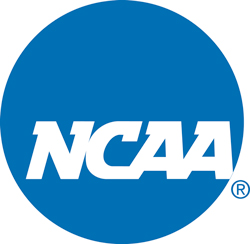Top Class Actions’s website and social media posts use affiliate links. If you make a purchase using such links, we may receive a commission, but it will not result in any additional charges to you. Please review our Affiliate Link Disclosure for more information.

Plaintiff Shawne Alston alleges in the NCAA scholarship class action lawsuit that the NCAA and the conferences, collectively the Pac-12, Big Ten, Big 12, Southeastern Conference and the Atlantic Coast Conferences, collude in maintaining scholarship offers to players that are less than the combination of tuition, room and board and other fees because of decades-old rules.
In the case of Alston, he reportedly had to take out a $5,500 student loan to pay for some of his bills related to attendance. Forcing students who want to play at one of the Football Bowl Subdivision, formerly Division I-A, to bear these costs when there are colleges who would likely pay for these expenses is the result of the collusion and anti-competitive environment of the NCAA, according to his class action lawsuit.
Alston’s class action lawsuit cites comments made by NCAA President Mark Emmert regarding the disparity and efforts by some schools to allow for even a $2,000 addition to the scholarships, also known as grants-in-aid. The difference, as Emmert himself has noted, would not make a large difference in expenses. In the case of the “power conferences” like the Pac-12 and Southeastern Conference, this is accurate.
However, there are hundreds of other schools for which Division I-A athletics are not profitable. Efforts to adopt a structure of two tiers, one for the conferences that can afford to pay the additional amount for grants-in-aid, has been proposed in 2014, but the “have-not” schools have allegedly harmed student athletes because they create an anti-competitive atmosphere for players like Alston.
Further, the NCAA scholarship class action lawsuit alleges that in other arenas, the schools act competitively, offering premium compensation to coaches and athletic directors and pursuing recruits. Those same recruits have no other quality alternative for pursuing both a college degree and a competitive football environment in terms of both training and exposure, according to the complaint, leaving them few options that don’t include bearing the costs themselves.
Finally, while the players are students, the class action lawsuit alleges that the grants-in-aid are commercial transactions. Without those athletes, the teams could not compete and as such could not achieve television contracts and other revenue generating activities that support the athletic departments and the schools as a whole. Further, they allege the grants-in-aid are solely dependent on athletic performance. Athletes who stop playing cannot keep their scholarships except in very specific circumstances.
The class action lawsuit cites testimony from NCAA experts in the antitrust litigation with lead plaintiff Ed O’Bannon and is an effort to a similar end: the creation of an environment where Football Bowl Subdivision players at West Virginia University and elsewhere are fully compensated for their attendance and play.
Alston and the putative class are represented by Steve W. Bergman of Hagens Berman Sobol Shapiro LLP and Bruce L. Simon and Thomas K. Boardman of Pearson, Simon & Warshaw, LLP.
The NCAA Football Scholarship Class Action Lawsuit is Shawne Alston v. National Collegiate Athletic Association et al., Case No. 14-cv-01011, U.S. District Court, Northern District of California.
UPDATE: On June 4, 2014, the JPML ordered the centralization of all NCAA scholarship class action lawsuits to the Northern District of California. A total of three class action lawsuits, including this one, are now consolidated as In re: National Collegiate Athletic Association Athletic Grant-in-Aid Antitrust Litigation. Any tag-along cases will be added to the MDL.
UPDATE 2: On Feb. 3, 2017, the National Collegiate Athletic Association and 11 conferences agreed to pay $208.7 million to resolve multidistrict litigation alleging an antitrust conspiracy to cap the scholarships of student athletes.
ATTORNEY ADVERTISING
Top Class Actions is a Proud Member of the American Bar Association
LEGAL INFORMATION IS NOT LEGAL ADVICE
Top Class Actions Legal Statement
©2008 – 2024 Top Class Actions® LLC
Various Trademarks held by their respective owners
This website is not intended for viewing or usage by European Union citizens.















2 thoughts onNCAA Football Scholarship Class Action Alleges Discrepancies in Aid
UPDATE 2: On Feb. 3, 2017, the National Collegiate Athletic Association and 11 conferences agreed to pay $208.7 million to resolve multidistrict litigation alleging an antitrust conspiracy to cap the scholarships of student athletes.
UPDATE: On June 4, 2014, the JPML ordered the centralization of all NCAA scholarship class action lawsuits to the Northern District of California. A total of three class action lawsuits, including this one, are now consolidated as In re: National Collegiate Athletic Association Athletic Grant-in-Aid Antitrust Litigation. Any tag-along cases will be added to the MDL.